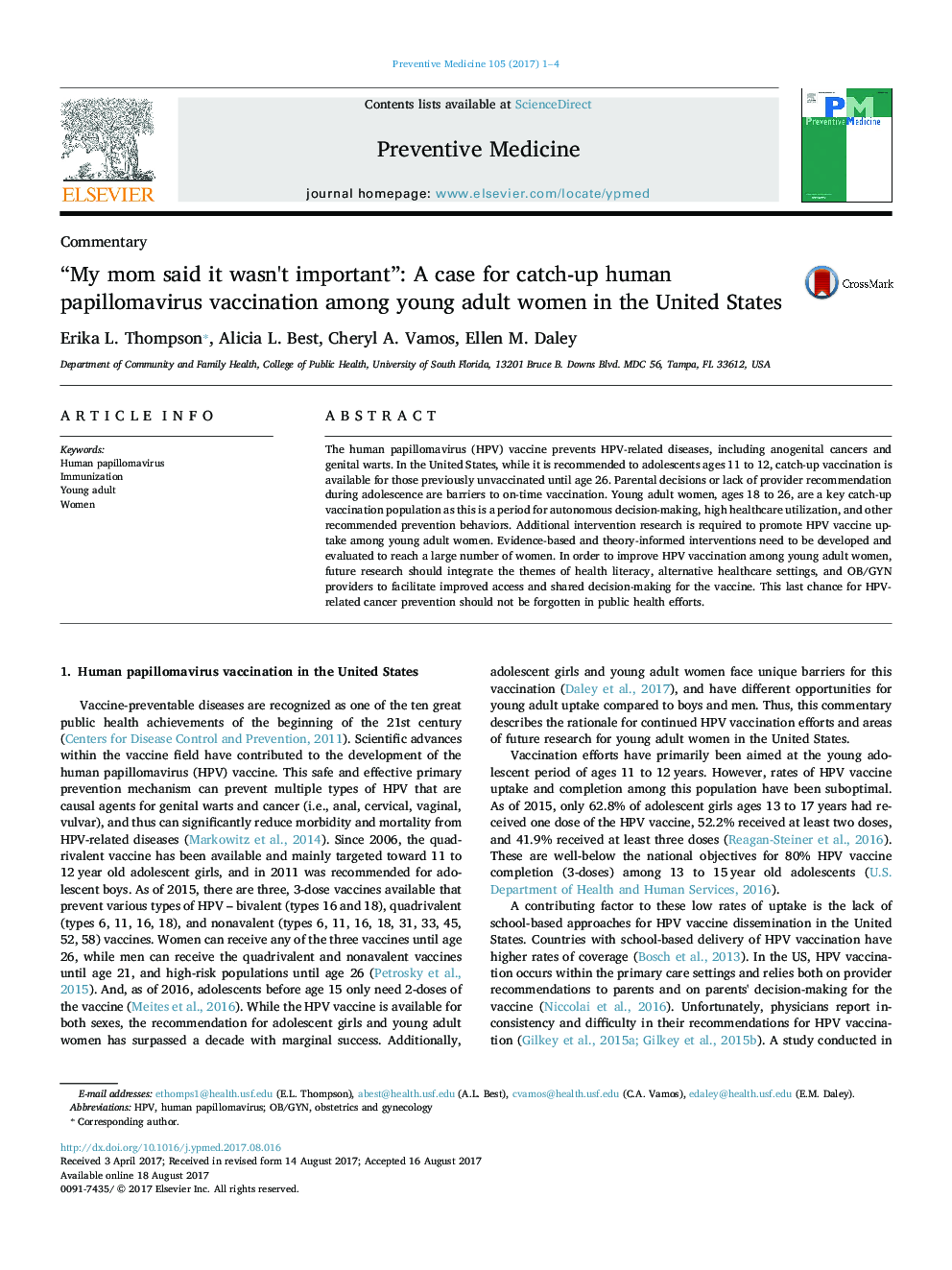| Article ID | Journal | Published Year | Pages | File Type |
|---|---|---|---|---|
| 5635452 | Preventive Medicine | 2017 | 4 Pages |
The human papillomavirus (HPV) vaccine prevents HPV-related diseases, including anogenital cancers and genital warts. In the United States, while it is recommended to adolescents ages 11 to 12, catch-up vaccination is available for those previously unvaccinated until age 26. Parental decisions or lack of provider recommendation during adolescence are barriers to on-time vaccination. Young adult women, ages 18 to 26, are a key catch-up vaccination population as this is a period for autonomous decision-making, high healthcare utilization, and other recommended prevention behaviors. Additional intervention research is required to promote HPV vaccine uptake among young adult women. Evidence-based and theory-informed interventions need to be developed and evaluated to reach a large number of women. In order to improve HPV vaccination among young adult women, future research should integrate the themes of health literacy, alternative healthcare settings, and OB/GYN providers to facilitate improved access and shared decision-making for the vaccine. This last chance for HPV-related cancer prevention should not be forgotten in public health efforts.
